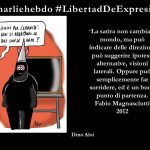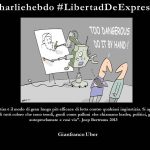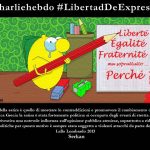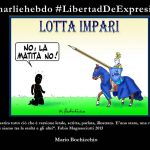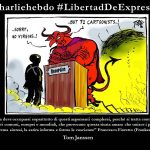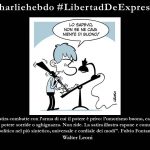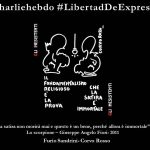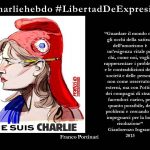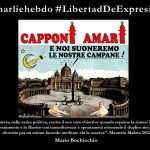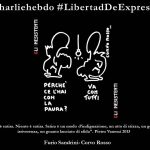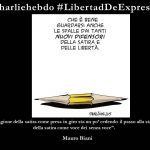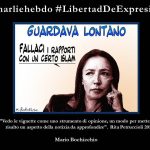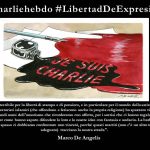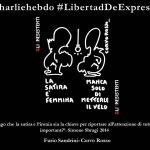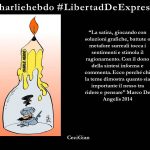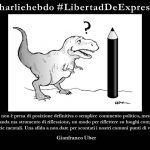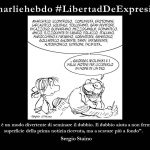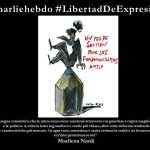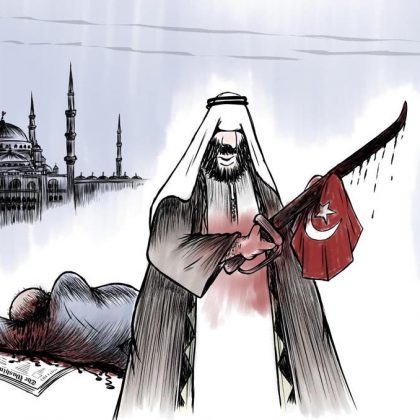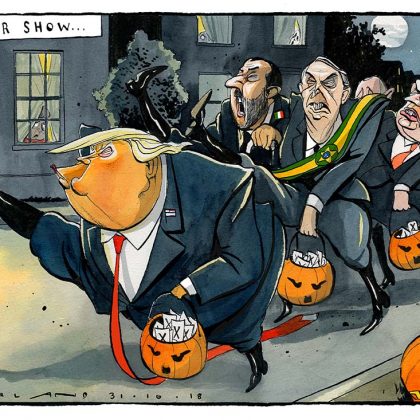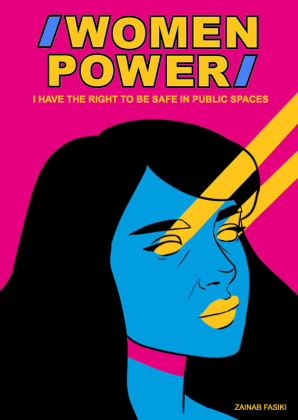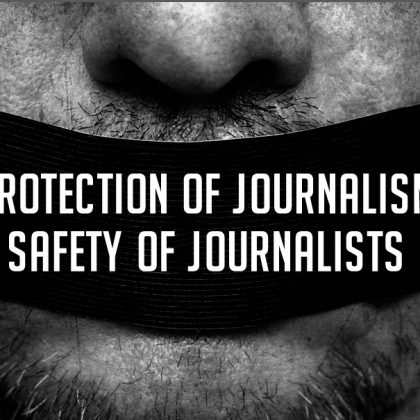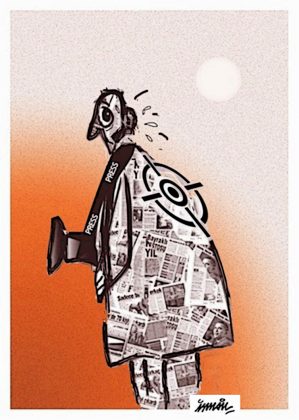In February 2015, I decided, with the complicity of many caricaturist friends, to pay homage to Charlie’s cartoonists and the people murdered during this vile terrorist operation of February, 7 2015 in Paris. Following this publication Guillaume Doizy, the editor-in-chief and creator of the beautiful website www.caricaturesetcaricature.com interviewed me:
http://www.caricaturesetcaricature.com/2015/02/la-satire-est-un-element-fondamental-de-la-democratie-meme-si-elle-peut-etre-un-outil-des-dictatures-donc-du-debat-citoyen-entretien
To honor the memory of all the people murdered because of their freedom of expression, of their commitment to democracy and secularism which is a categorical imperative, I propose an excerpt from this interview of which I would not change a line three years later, and to propose as well, the gallery of drawings published at the time.
INTERVIEW:
Guillaume Doizy – The attacks of January 2015 in Paris, the shootings in Copenhagen more recently: the threat against freedom of expression is now summarized only terrorist attacks perpetrated by radical Islamists?
Thierry Vissol – No, of course not, far from it. Threats to freedom of expression are neither new nor last, they are permanent and likely to grow. The crimes perpetrated in Paris or Copenhagen affect us more particularly, because they occurred in our capitals and sacrificed icons. But the list of cartoonists and journalists murdered for their freedom of speech, their investigative work, etc., unfortunately, is very long, not only in countries where ‘regimes’ of all kinds are prevalent, but also in our democratic countries. What can change, in worse, after the recent attacks, is the general atmosphere of fear that can lead (we have seen it with the refusal of major Anglo-Saxon newspapers to publish the cover of Charlie Hebdo after the attack in Paris), to amplify the weight of self-censorship in the media. The number of “arguments-but ...” (rather assertions than arguments, in fact) continues to increase: “I agree with the freedom of the press, but …“, “I am Charlie, but ...”; “We respect freedom of expression, but …” The “but” is the most dangerous word, because it fundamentally contradicts the thesis expressed in the premise. Freedom of expression cannot – by definition – support a “but …“. As recalled by Roberto Casati (Italian, professor at Normal Sup and CNRS research director at the Nicod Institute in Paris – in the newspaper “Il Sole24 ore”, of February 15, 2015): on the one hand, there must be a symmetry between the freedom of expression of practitioners of any religion and that of the laïques. On the other hand, in free societies blasphemy is not unlawful. And it is appropriate to separate the offense, which it could produce (unquantifiable and not individual) with the “harm” (“incitement to hatred”, etc.), which is quantifiable, individually or collectively, and is actually legally punishable. It is an offense for an atheist or a laïque to see the signs of a religion imposed in public spaces – spaces that should be neutral to ensure the equality of believers of all faiths, laïque and atheists –; to support the will of some to impose their precepts on all. Is it less offensive to a layman than blasphemy to a believer? There is no reason to accept such asymmetry. In other words, to the question whether or not to impose limits on the freedom of the press and expression, under the pretext of “respect” (a term for which it is difficult to specify the legal content) of sensitivities not categorized in civil or criminal law? My answer is clearly no. Because, if that were the case, where can the legislator put the border? The position of the cursor, at the mercy of those who have power, threats capacity or weapons, would then be the best way to suppress freedom of expression. It is necessary to have the courage to say it and to continue the fight so that the religions remain in the field which is theirs, that of the individual spirituality which deserves the respect as much as the laicity (which moreover, it must be advisable to specify, not only does not prevent all forms of spirituality but, on the contrary, protects their expression and practices), and so that the religions do not interfere with the public sphere, if not through the responsibility of each individual in the binomial which is a true expression of democracy: the freedom of expression and the vote.
GALLERY:



